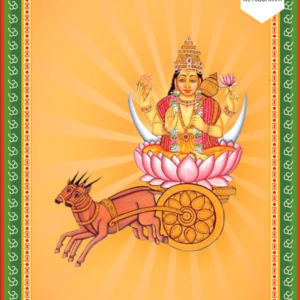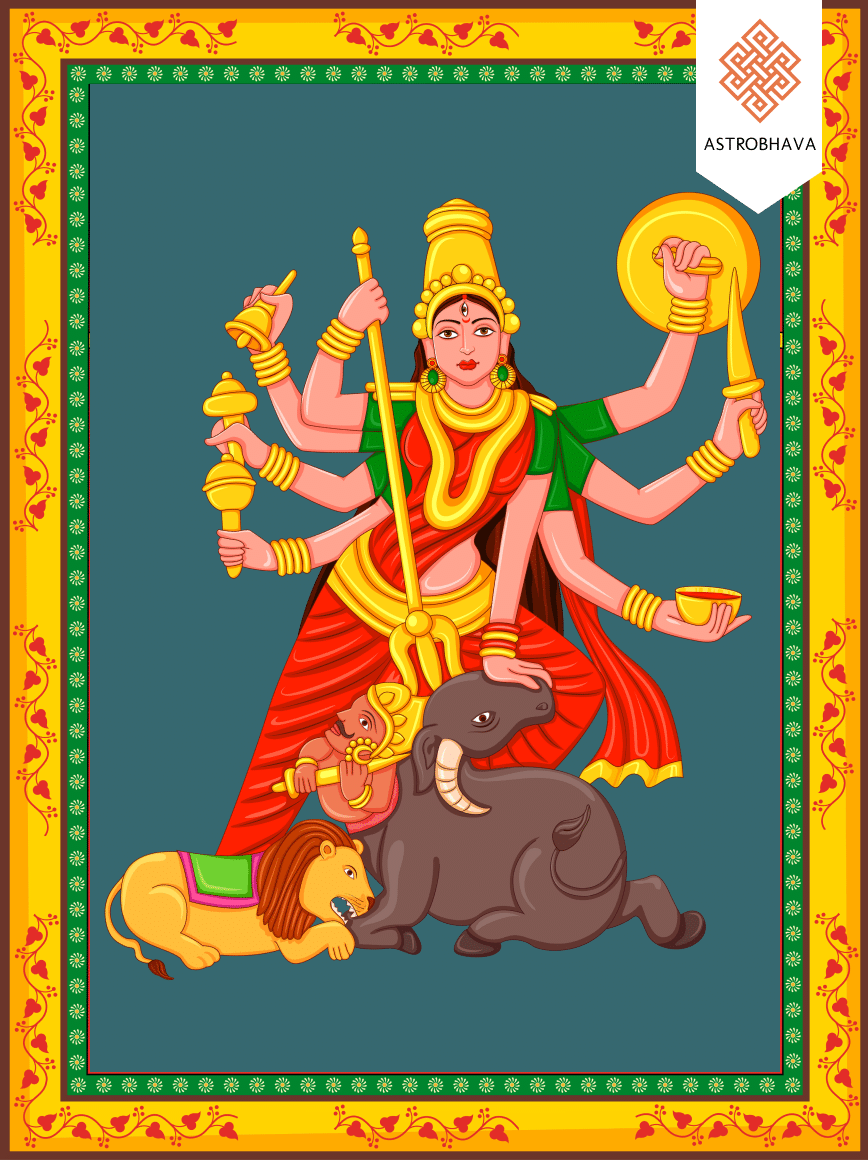
Navami Tithi 2025
Navami Tithi 2025
Navami: Significance and Spiritual Importance
Navami, the ninth day of the lunar fortnight in the Hindu calendar, holds immense spiritual significance in various traditions. Falling within both the waxing (Shukla Paksha) and waning (Krishna Paksha) phases of the moon, each Navami day has its distinct aspects that devotees observe. Navami is dedicated to worship, fasting, and remembrance of spiritual principles. It is commonly known for the celebration of Rama Navami, which marks the birth of Lord Rama, one of the most revered deities in Hindu tradition, and Durga Navami, observed during Navratri, which honors Goddess Durga.
Each Navami has unique significance depending on the month and phase of the moon. For example, Rama Navami occurs on the ninth day of Chaitra, during Shukla Paksha, symbolizing victory over evil and divine protection. During Navratri, Maha Navami symbolizes Goddess Durga’s victory over the demon Mahishasura, an event celebrated with vibrant rituals. Observing Navami days with devotion, prayer, and meditation is believed to invite positive energy, dispel negativity, and provide spiritual cleansing.
Mantras to Chant on Navami
- Ram Mantra:
- “Om Sri Ramaya Namaha”
Chanting this mantra invokes the blessings of Lord Rama, bringing protection, strength, and courage. It is especially powerful on Rama Navami.
- “Om Sri Ramaya Namaha”
- Durga Mantra (for Maha Navami during Navratri):
- “Om Dum Durgayei Namaha”
This mantra is associated with invoking the protective and transformative energy of Goddess Durga, granting courage and removing obstacles.
- “Om Dum Durgayei Namaha”
- Vishnu Mantra (for general Navami observance):
- “Om Namo Bhagavate Vasudevaya”
This mantra honors Lord Vishnu, inviting peace, spiritual guidance, and stability.
- “Om Namo Bhagavate Vasudevaya”
- Navagraha Mantra (to pacify planetary influences):
- “Om Navagrahaya Namaha”
This mantra is chanted to seek harmony with the cosmic energies and reduce any adverse planetary effects.
- “Om Navagrahaya Namaha”
Navami Tithi 2025
| Date Range (2025) | Navami Tithi Start and End Times (IST) |
| January 7-8 | Starts: January 7, 4:27 PM |
| Ends: January 8, 2:26 PM | |
| January 22-23 | Starts: January 22, 3:18 PM |
| Ends: January 23, 5:38 PM | |
| Feb-06 | Starts: February 6, 12:36 AM |
| Ends: February 6, 10:54 PM | |
| February 21-22 | Starts: February 21, 11:58 AM |
| Ends: February 22, 1:19 PM | |
| March 7-8 | Starts: March 7, 9:19 AM |
| Ends: March 8, 8:17 AM | |
| March 23-24 | Starts: March 23, 5:23 AM |
| Ends: March 24, 5:38 AM | |
| April 5-6 | Starts: April 5, 7:27 PM |
| Ends: April 6, 7:23 PM | |
| April 21-22 | Starts: April 21, 6:59 PM |
| Ends: April 22, 6:13 PM | |
| May 5-6 | Starts: May 5, 7:36 AM |
| Ends: May 6, 8:39 AM | |
| May 21-22 | Starts: May 21, 4:56 AM |
| Ends: May 22, 3:22 AM | |
| June 3-4 | Starts: June 3, 9:56 PM |
| Ends: June 4, 11:54 PM | |
| June 19-20 | Starts: June 19, 11:56 AM |
| Ends: June 20, 9:49 AM | |
| July 3-4 | Starts: July 3, 2:07 PM |
| Ends: July 4, 4:32 PM | |
| July 18-19 | Starts: July 18, 5:02 PM |
| Ends: July 19, 2:42 PM | |
| August 2-3 | Starts: August 2, 7:23 AM |
| Ends: August 3, 9:42 AM | |
| August 16-17 | Starts: August 16, 9:35 PM |
| Ends: August 17, 7:24 PM | |
| September 1-2 | Starts: September 1, 12:58 AM |
| Ends: September 2, 2:43 AM | |
| September 15-16 | Starts: September 15, 3:06 AM |
| Ends: September 16, 1:31 AM | |
| September 30 – October 1 | Starts: September 30, 6:06 PM |
| Ends: October 1, 7:01 PM | |
| October 14-15 | Starts: October 14, 11:10 AM |
| Ends: October 15, 10:34 AM | |
| October 30-31 | Starts: October 30, 10:07 AM |
| Ends: October 31, 10:04 AM | |
| November 12-13 | Starts: November 12, 10:58 PM |
| Ends: November 13, 11:34 PM | |
| Nov-29 | Starts: November 29, 12:15 AM |
| Ends: November 29, 11:15 PM | |
| December 12-13 | Starts: December 12, 2:57 PM |
| Ends: December 13, 4:38 PM | |
| December 28-29 | Starts: December 28, 12:00 PM |
| Ends: December 29, 10:12 AM |
Remedies for Navami
Navami is a spiritually powerful day, and certain remedies observed on this day are believed to enhance one’s well-being, bring peace, and invite divine blessings. Here are remedies to observe on Navami:
-
- Begin Navami by offering gratitude to the divine for protection and guidance. This can be as simple as lighting a lamp and offering flowers, with a short prayer for personal well-being and family harmony.
- Observing a Navami fast by consuming a sattvic (pure and simple) diet without heavy or tamasic (intoxicating) foods is believed to purify the mind and body. Many people consume only fruits or water on this day.
- Durga Homa: Performing Durga Homa on Navami, particularly during Maha Navami, invokes Goddess Durga’s blessings. This Homa is said to remove obstacles, shield against negativity, and bring peace.
- Rama Homa: Conducting a Rama Homa is beneficial on Rama Navami. This homa invokes the energy of Lord Rama, believed to provide strength, courage, and protection.
- Durga Puja: Performing Durga Puja on Navami, especially during the Navratri festival, helps remove negativity and aligns the individual with positive cosmic energies. This puja enhances spiritual strength and brings harmony into one’s life.
- Vishnu Puja: Worshiping Lord Vishnu on Navami with devotion and offering flowers, incense, and prayers is believed to bring prosperity and peace into one’s life.
- Chanting the Ram Mantra: Repeating the Ram Mantra (“Om Sri Ramaya Namaha”) on Navami is believed to attract positive energy and purify the mind and surroundings. This chant is associated with courage, protection, and overcoming difficulties.
- Durga Mantra Japa: Reciting the Durga Mantra (“Om Dum Durgayei Namaha”) helps one connect with the protective energies of Goddess Durga. This mantra is associated with strength, courage, and divine protection.
Do’s and Don’ts on Navami
Do’s:
- Begin the Day with Cleanliness and Prayer: Start Navami with a bath, wear clean clothes, and set a positive intention for the day.
- Offer Devotion and Respect: Dedicate time to worship by lighting a lamp, offering flowers, and chanting mantras. Maintain sincerity in your prayers.
- Follow a Sattvic Diet: Consume a light, sattvic diet (vegetarian, simple, and clean foods). This enhances mental clarity and spiritual focus.
- Observe Fasting if Possible: Fasting, either fully or with fruit and water, helps in spiritual cleansing and invites blessings.
- Perform Japa and Meditation: Engage in mantra chanting and meditation to deepen your connection with divine energy. Aim for focus and mindfulness.
- Donate and Help Others: Engaging in charity or helping those in need on Navami is considered auspicious. It symbolizes compassion and earns positive karma.
Don’ts:
- Avoid Tamasic Foods: Do not consume foods that are heavy or tamasic (like meat, garlic, and alcohol) as they can disturb mental calmness and purity.
- Refrain from Negative Thoughts and Speech: Avoid arguments, gossip, or negative thoughts as Navami is a day for spiritual elevation.
- Limit Material Activities: Try not to engage in overly materialistic or indulgent activities; focus on spiritual practices instead.
- Avoid Excessive Physical Strain: Refrain from strenuous physical activities as they may reduce the body’s natural energy levels.
- Do Not Skip Rituals or Prayers: Try to maintain continuity with prayers and rituals to uphold the sanctity of the day.
- Avoid Anger and Impatience: Cultivate calmness and patience throughout the day, keeping a positive mindset aligned with the peaceful energy of Navami.
Observing these practices with devotion can enhance the benefits of Navami and help cultivate a mindful, positive experience on this auspicious day.
Benefits of Navami Fasting
Navami fasting is considered highly beneficial for both spiritual and personal growth. Here are ten in-depth points on the benefits of observing Navami fasting, each contributing uniquely to one’s mental, physical, and spiritual well-being:
- Spiritual Purification
Fasting on Navami is a practice that purifies the soul by aligning one’s intentions with a higher purpose. Through this discipline, individuals detach from materialistic desires and foster inner growth, allowing them to experience divine energy. Spiritual purity is believed to be heightened as one dedicates time to prayers and rituals, strengthening the connection to spiritual ideals and enriching faith. - Mind-Body Detoxification
Physically, fasting allows the digestive system to rest, which aids in natural detoxification. With the absence of heavy foods, the body uses its energy to cleanse toxins, promoting better health. On the mental front, a sattvic (pure) diet calms the mind, and by abstaining from tamasic foods, such as meats and processed items, the body feels lighter, improving mental clarity. This detox experience helps clear physical and mental blockages, promoting holistic well-being. - Increased Focus and Mental Clarity
Fasting on Navami is a form of mental discipline. As one abstains from certain foods and routines, the mind becomes less distracted and more focused. This heightened concentration supports mental clarity, allowing individuals to immerse deeply in their prayers, meditations, and daily tasks. The calmness derived from fasting helps one observe life with a balanced perspective, improving emotional resilience. - Reduction of Negative Karma
According to spiritual belief, fasting on Navami helps neutralize past negative karma. As individuals engage in positive acts like prayer, meditation, and charity, it is thought that they can offset previous actions that may have had adverse karmic consequences. This practice opens the pathway to a more balanced and harmonious life, as the individual accumulates good karma through devotion and self-restraint. - Enhanced Inner Strength and Self-Control
Fasting on Navami is an exercise in self-discipline and self-control. Resisting the urge to eat and committing to a sattvic diet encourages individuals to manage desires, ultimately strengthening their willpower. Practicing self-restraint cultivates resilience, which positively influences other aspects of life, including the ability to handle difficult situations, maintain commitments, and build character. - Emotional Stability and Peace
Fasting, especially on spiritually significant days like Navami, has a soothing effect on the mind and emotions. Engaging in prayer and meditation during fasting cultivates a peaceful state of mind, helping to alleviate stress, anxiety, and emotional upheaval. This practice creates a grounding effect, bringing emotional stability and a sense of inner peace that persists beyond the fasting period. - Improved Physical Health and Immunity
Fasting has proven health benefits, as it gives the digestive system a chance to reset and strengthen. During a Navami fast, consuming only light foods or liquids can boost the immune system, aiding the body in fighting infections and inflammation. This rest period allows the body to focus on repairing cells and regulating metabolic processes, which supports long-term health benefits. - Stronger Connection with the Divine
Fasting on Navami is a practice that strengthens one’s relationship with divine energies. By dedicating time to prayer and chanting mantras, individuals experience a deeper connection with their chosen deities or spiritual symbols. This experience is not only uplifting but also brings a sense of divine support and protection, fostering an atmosphere of devotion and reverence. - Promotion of Positive Energy in the Environment
The practice of fasting, accompanied by prayer and mantra chanting, creates an aura of positivity around the individual. Many believe that fasting attracts divine energies, and the environment where Navami is observed becomes charged with peace, harmony, and positivity. This positive energy is believed to bring good fortune, positively influence family and personal life, and create a supportive atmosphere for spiritual practices. - Cultivation of Compassion and Humility
Fasting helps individuals appreciate the blessings they have by experiencing self-imposed restraint and simplicity. This practice encourages compassion toward those who may not have abundant resources and nurtures empathy. It also cultivates humility, as individuals recognize their dependence on a higher power and the limitations of the physical self. Observing Navami with humility and kindness inspires one to perform charitable acts, contribute to the well-being of others, and develop a grateful mindset.
Observing Navami fasting with dedication enriches one’s life on multiple levels—spiritual, mental, emotional, and physical—creating a harmonious and peaceful state of being. Through these ten benefits, the Navami fast stands as a powerful means to cultivate a balanced, mindful, and fulfilling life.
Frequently Asked Questions on Navami
- What is Navami? Navami is the ninth day of each lunar fortnight in the Hindu calendar, holding spiritual importance in various traditions.
- Why is Rama Navami celebrated? Rama Navami marks the birth of Lord Rama, symbolizing divine protection and the victory of good over evil.
- How is Maha Navami different from other Navamis? Maha Navami is the final day of Navratri, dedicated to Goddess Durga’s triumph over the demon Mahishasura, celebrated with grand rituals.
- Is it necessary to fast on Navami? Fasting on Navami is not mandatory, but it is believed to provide spiritual and physical benefits to those who observe it.
- Can Navami be observed at home? Yes, Navami rituals can be performed at home by offering prayers, fasting, and conducting simple pujas.
- What are the benefits of performing Durga Puja on Navami? Performing Durga Puja on Navami is believed to invite divine protection, remove negativity, and bring inner strength.
- How does chanting the Ram Mantra on Navami help? Chanting the Ram Mantra brings calm, purifies the mind, and aligns the individual with divine energy.
- Is it possible to perform a Navami Puja without a priest? Yes, Navami Puja can be self-conducted with devotion, simple offerings, and prayer, even without a priest.
- What is the best time for Navami rituals? Navami rituals are typically performed in the morning or during the auspicious Muhurta (time period) specified for the day.
- Can children observe Navami fasting? Children can observe a mild fast with a fruit-only or sattvic diet if they are able to; however, it is not obligatory for them.
- What is the significance of offering flowers on Navami? Offering flowers symbolizes devotion, gratitude, and respect for the divine, enhancing the purity of the ritual.
- Is it beneficial to perform a homa on Navami? Yes, performing homa on Navami, like Durga Homa or Rama Homa, is considered auspicious and invites divine blessings.
- What should one avoid on Navami? It is ideal to avoid tamasic foods (such as meat and alcohol), negativity, and activities that disturb mental peace on Navami.
- Are there any specific colors to wear on Navami? Wearing bright and respectful colors, such as white or red, is encouraged during Navami rituals, especially during Navratri.
- Can Navami be observed without fasting? Yes, while fasting is common, Navami can still be observed with prayers, devotion, and other rituals without fasting.






